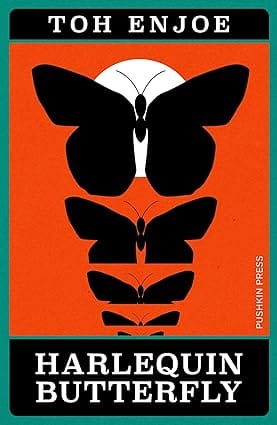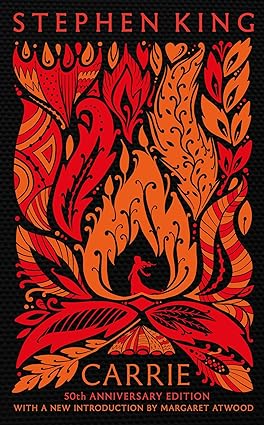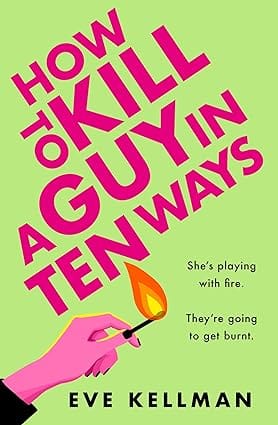- Contemporary Fiction
- Contemporary Fiction
- Children
- Children
- Comics & Graphic Novels
- Comics & Graphic Novels
- Non-Fiction
- Non-Fiction
- Fiction
- Fiction
A building full of secrets. A key that will unleash them all
The K Apartments for Ladies in Tokyo conceals a sinister past behind each door; a woman who has buried a child; a scavenger driven mad by ill-health; a wife mysteriously guarding her late husband's manuscripts; a talented violinist tortured by her own guilt. The master key, which opens the door to all 150 rooms, links their tangled stories. But now it has been stolen, and dirty tricks are afoot.
For a deadly secret lies buried beneath the building. And when it is revealed, there will be murder.
Review
"Fans of P.D. James, Robert Barnard and other literate writers in the genre will welcome this prize-winning author's first work... Superbly crafted and riveting from start to finish." — Kirkus Reviews
"A twisted locked-room fable, made creepily seductive by masterful portrayals of the residents' eccentricities and hints of malevolent supernatural forces." — Booklist Online
"Extraordinarily atmospheric Japanese thriller ... Miss Togawa writes with economy, subtlety and an astonishing feel for time, mood, and the eccentricities of loneliness. An eerie gem." — Marcel Berlins, The Times
"As fascinating a weird yarn of mystery as you'll find... One word sums it up - superb!" — LA Times
"If you seek a wickedly original, clever crime novel, a brilliant exploration of the weaknesses of the human mind, I strongly recommend you lose yourself in Togawa’s acutely portrayed sketch." — Thrillers Books Journal
"Masako Togawa’s works have been recently reissued by Pushkin Press, and we can’t thank them enough!" — Crime Reads
"Starts out on a high note of tension and stays that way up until the very end." — Crime Segments
"A clever story... If you like creepy this will definitely be right up your street." — Crime Review
"A clever, creepy story." — Mail on Sunday
"The PD James of Japan." — Times Literary Supplement
"A bizarre yarn of guilty secrets among the sad, mad and surprisingly bad occupants of Tokyo’s K Apartments for ladies only." — Sunday Times Crime Club
"Slickly-readable… jaw-dropping moments… Sharply crafted plotting ... Is Masako Togawa Japan’s answer to P.D. James? James should be so lucky." — South China Morning Post
About the Author
Excerpt. © Reprinted by permission. All rights reserved.
1 April 1951: At the Otsuka Nakacho crossroads
On that day, the snow (unusual for April) which had fallen on
the night before was still half an inch deep in the morning.
But before midday the sun peeped through the clouds
and a thaw set in. In no time at all, the streets once again
danced in the sunshine of spring.
At exactly noon, a woman tried to cross the road at the
Otsuka Nakacho crossroads, even though the lights were
against her.
Her head was completely hooded by a red scarf, and she
wore a thick winter coat over black ski pants. This in spite
of the fact that everyone else on the street was beginning
to sweat slightly in the warm sunshine…
When the woman had got about a third of the way
across the road, a small van came racing towards her from
the direction of the Gokokuji temple. It was fully laden
with wooden kegs of nails. The young driver, a boy from
the mountains, was affected by the snow; his mind was full
of the rosy-cheeked girls of his native place, and he had
his foot hard down on the accelerator as he came up the
slope. The green light seemed to beckon his youthfulness
on—hurry! hurry! it seemed to say. From the corner of
his eye, he caught a sudden glimpse of the girl in the red
scarf but to him it was just a further reminder of the girls
in his snow-bound native village. Perhaps that was why he
skidded on the tramlines, although one cannot be sure. At
any rate, the inexperienced young driver slammed on his
brakes, but the van did not respond to his efforts to control
it. It slid right around and headed back towards the woman.
The last thing the young man saw before closing his eyes
was the red-scarved and astonished face of the woman as
she came crashing through his windscreen.
It took three minutes for the white ambulance to come
from the fire station a hundred yards from the junction; it
sped away with the casualties, and in another three minutes
had delivered them to a nearby branch of the T University
hospital. During this time, the girl opened her mouth and
muttered something three times, but no one could catch
what she was trying to say. By the time the ambulance
reached the hospital, it was over.
A tall, white-coated doctor examined the body and
pronounced it dead.
‘In spite of the lipstick, this was a male,’ he added in a
strangled voice. His face was quite expressionless.
Those present had difficulty in repressing their laughter,
until they were overcome by the solemnity of death,
so that even the horror of the traffic accident was driven
from their minds.
The young driver, who had been but the instrument
of destiny, was punished beyond reason. He was in deep
shock, and even after admission to the hospital he seemed
unable to close his mouth. He slavered constantly, and kept
muttering disjointedly, but all he could say was, ‘The red
scarf, the red scarf.’
Time passed.
The busy police detectives waited for a family to come
forward and identify the body of an unknown male, aged
about thirty, who wore female dress…
Time passed.
A cub reporter covering crime, with time on his hands,
went around the homosexual world of Ueno showing the
photograph of the unidentified male…
Time passed.
The doctors and nurses at the hospital gradually ceased
to joke during tea-breaks about the unidentified male,
in female dress, who had been run over at the Otsuka
Nakacho crossroads.
But somewhere, a woman waited alone in a darkened
room… waited for the man to come back to her.
The room was on the fifth floor of an apartment block,
buried in the shadows just two bus stops away from the
Otsuka Nakacho crossroads.
She awaited the return of the man whom she had dressed
in her own red scarf, winter coat and black ski pants, the
man who had gone off with slumped shoulders, without
even looking back.
She waited, alone, for seven years. She is still waiting.
The name of the building where she lives is ‘The K
Apartments for Ladies’.
PART ONE
Three hints
The eye-witness: Three days before the accident
The man stumbled yet again as he climbed the stairs.
The Gladstone bag that he was carrying seemed to get
heavier and heavier; already, he had had to stop on the
landing of the third floor to change hands. He gazed
at the brown dyed leather bag, cursing its weight, but
betraying no emotion towards its contents. He was too
far gone to think of that any more. All he was now concerned
about was getting everything over with as soon
as possible. He had been driven along for the last few
hours by a feeling of resignation, a hope that the end
was at last in sight. His consciousness seemed blocked
by a wall, or blinded in limitless darkness. Now that the
end was at last near, he felt no elation, merely a sense
of despair.
Shrugging his shoulders, he wiped his forehead with a
handkerchief and carefully readjusted the red scarf around
his face before picking up the leather bag again. The sweet
female perfume on the scarf affected him profoundly.
Recovering his spirits, he lifted the heavy case and carried
it, bumping his knees, up the staircase. From time to time,
he could hear footsteps or voices downstairs. Hurrying
on, he reached the fifth floor and, pausing only to make
sure there was no sign of life in the corridor, made his
way to the door of a certain apartment.
A girl was waiting there. Glancing at the travelling bag,
she asked, ‘Did the receptionist say anything?’
‘No, she was so deep in her newspaper that she didn’t
even notice me.’
As he replied, he lowered the case onto the doorstep.
The leather base curled and the bag overbalanced onto
the concrete floor with a dull thump.
‘Hey, watch what you’re doing! You shouldn’t treat it so
roughly!’ exclaimed the girl in a loud voice.
The man wanted to point out how heavy the bag was,
and how his hands were slippery with sweat. But he could
only mumble, ‘It makes no difference.’
The woman, without seeking his help, lugged the bag
into the middle of the room.
‘Poor little thing. Well, we’d better get him out quickly.’
‘Poor little thing.’ The woman repeated herself, but the
man could only slump on the floor and gaze blankly at her.
The woman snapped apart the clasp of the bag, which
fell open. Inside, there was the body of a small child. She
unwrapped the thick blanket, revealing miniature features
in apparently tranquil sleep.
His silky flaxen hair glimmered like gold in the lamplight.
The girl chattered ecstatically.
‘Oh my, oh my! Poor little fellow—we must get you out
of this, mustn’t we now? What a good little boy to put up
with such cramps for so long!’
As she bent down to draw the little blanket-swaddled
body from the bag, she noticed for the first time that he
was gagged with a white handkerchief stained with clotted
black blood. After a while she spoke, but her voice now had
a hollow ring to it.
‘He’s dead.’
The man propped himself up on his elbows.
‘It couldn’t be helped. It was the only way.’
For a long while, all was silent in the room. The man
and the woman just sat there with the corpse of the child
in the travelling bag between them.
- Home
- Crime Thriller & Mystery Books
- The Master Key
The Master Key
SIZE GUIDE
- ISBN: 9781782277729
- Author: Masako Togawa
- Publisher: Pushkin Vertigo
- Pages: 192
- Format: Paperback
Book Description
A building full of secrets. A key that will unleash them all
The K Apartments for Ladies in Tokyo conceals a sinister past behind each door; a woman who has buried a child; a scavenger driven mad by ill-health; a wife mysteriously guarding her late husband's manuscripts; a talented violinist tortured by her own guilt. The master key, which opens the door to all 150 rooms, links their tangled stories. But now it has been stolen, and dirty tricks are afoot.
For a deadly secret lies buried beneath the building. And when it is revealed, there will be murder.
Review
"Fans of P.D. James, Robert Barnard and other literate writers in the genre will welcome this prize-winning author's first work... Superbly crafted and riveting from start to finish." — Kirkus Reviews
"A twisted locked-room fable, made creepily seductive by masterful portrayals of the residents' eccentricities and hints of malevolent supernatural forces." — Booklist Online
"Extraordinarily atmospheric Japanese thriller ... Miss Togawa writes with economy, subtlety and an astonishing feel for time, mood, and the eccentricities of loneliness. An eerie gem." — Marcel Berlins, The Times
"As fascinating a weird yarn of mystery as you'll find... One word sums it up - superb!" — LA Times
"If you seek a wickedly original, clever crime novel, a brilliant exploration of the weaknesses of the human mind, I strongly recommend you lose yourself in Togawa’s acutely portrayed sketch." — Thrillers Books Journal
"Masako Togawa’s works have been recently reissued by Pushkin Press, and we can’t thank them enough!" — Crime Reads
"Starts out on a high note of tension and stays that way up until the very end." — Crime Segments
"A clever story... If you like creepy this will definitely be right up your street." — Crime Review
"A clever, creepy story." — Mail on Sunday
"The PD James of Japan." — Times Literary Supplement
"A bizarre yarn of guilty secrets among the sad, mad and surprisingly bad occupants of Tokyo’s K Apartments for ladies only." — Sunday Times Crime Club
"Slickly-readable… jaw-dropping moments… Sharply crafted plotting ... Is Masako Togawa Japan’s answer to P.D. James? James should be so lucky." — South China Morning Post
About the Author
Excerpt. © Reprinted by permission. All rights reserved.
1 April 1951: At the Otsuka Nakacho crossroads
On that day, the snow (unusual for April) which had fallen on
the night before was still half an inch deep in the morning.
But before midday the sun peeped through the clouds
and a thaw set in. In no time at all, the streets once again
danced in the sunshine of spring.
At exactly noon, a woman tried to cross the road at the
Otsuka Nakacho crossroads, even though the lights were
against her.
Her head was completely hooded by a red scarf, and she
wore a thick winter coat over black ski pants. This in spite
of the fact that everyone else on the street was beginning
to sweat slightly in the warm sunshine…
When the woman had got about a third of the way
across the road, a small van came racing towards her from
the direction of the Gokokuji temple. It was fully laden
with wooden kegs of nails. The young driver, a boy from
the mountains, was affected by the snow; his mind was full
of the rosy-cheeked girls of his native place, and he had
his foot hard down on the accelerator as he came up the
slope. The green light seemed to beckon his youthfulness
on—hurry! hurry! it seemed to say. From the corner of
his eye, he caught a sudden glimpse of the girl in the red
scarf but to him it was just a further reminder of the girls
in his snow-bound native village. Perhaps that was why he
skidded on the tramlines, although one cannot be sure. At
any rate, the inexperienced young driver slammed on his
brakes, but the van did not respond to his efforts to control
it. It slid right around and headed back towards the woman.
The last thing the young man saw before closing his eyes
was the red-scarved and astonished face of the woman as
she came crashing through his windscreen.
It took three minutes for the white ambulance to come
from the fire station a hundred yards from the junction; it
sped away with the casualties, and in another three minutes
had delivered them to a nearby branch of the T University
hospital. During this time, the girl opened her mouth and
muttered something three times, but no one could catch
what she was trying to say. By the time the ambulance
reached the hospital, it was over.
A tall, white-coated doctor examined the body and
pronounced it dead.
‘In spite of the lipstick, this was a male,’ he added in a
strangled voice. His face was quite expressionless.
Those present had difficulty in repressing their laughter,
until they were overcome by the solemnity of death,
so that even the horror of the traffic accident was driven
from their minds.
The young driver, who had been but the instrument
of destiny, was punished beyond reason. He was in deep
shock, and even after admission to the hospital he seemed
unable to close his mouth. He slavered constantly, and kept
muttering disjointedly, but all he could say was, ‘The red
scarf, the red scarf.’
Time passed.
The busy police detectives waited for a family to come
forward and identify the body of an unknown male, aged
about thirty, who wore female dress…
Time passed.
A cub reporter covering crime, with time on his hands,
went around the homosexual world of Ueno showing the
photograph of the unidentified male…
Time passed.
The doctors and nurses at the hospital gradually ceased
to joke during tea-breaks about the unidentified male,
in female dress, who had been run over at the Otsuka
Nakacho crossroads.
But somewhere, a woman waited alone in a darkened
room… waited for the man to come back to her.
The room was on the fifth floor of an apartment block,
buried in the shadows just two bus stops away from the
Otsuka Nakacho crossroads.
She awaited the return of the man whom she had dressed
in her own red scarf, winter coat and black ski pants, the
man who had gone off with slumped shoulders, without
even looking back.
She waited, alone, for seven years. She is still waiting.
The name of the building where she lives is ‘The K
Apartments for Ladies’.
PART ONE
Three hints
The eye-witness: Three days before the accident
The man stumbled yet again as he climbed the stairs.
The Gladstone bag that he was carrying seemed to get
heavier and heavier; already, he had had to stop on the
landing of the third floor to change hands. He gazed
at the brown dyed leather bag, cursing its weight, but
betraying no emotion towards its contents. He was too
far gone to think of that any more. All he was now concerned
about was getting everything over with as soon
as possible. He had been driven along for the last few
hours by a feeling of resignation, a hope that the end
was at last in sight. His consciousness seemed blocked
by a wall, or blinded in limitless darkness. Now that the
end was at last near, he felt no elation, merely a sense
of despair.
Shrugging his shoulders, he wiped his forehead with a
handkerchief and carefully readjusted the red scarf around
his face before picking up the leather bag again. The sweet
female perfume on the scarf affected him profoundly.
Recovering his spirits, he lifted the heavy case and carried
it, bumping his knees, up the staircase. From time to time,
he could hear footsteps or voices downstairs. Hurrying
on, he reached the fifth floor and, pausing only to make
sure there was no sign of life in the corridor, made his
way to the door of a certain apartment.
A girl was waiting there. Glancing at the travelling bag,
she asked, ‘Did the receptionist say anything?’
‘No, she was so deep in her newspaper that she didn’t
even notice me.’
As he replied, he lowered the case onto the doorstep.
The leather base curled and the bag overbalanced onto
the concrete floor with a dull thump.
‘Hey, watch what you’re doing! You shouldn’t treat it so
roughly!’ exclaimed the girl in a loud voice.
The man wanted to point out how heavy the bag was,
and how his hands were slippery with sweat. But he could
only mumble, ‘It makes no difference.’
The woman, without seeking his help, lugged the bag
into the middle of the room.
‘Poor little thing. Well, we’d better get him out quickly.’
‘Poor little thing.’ The woman repeated herself, but the
man could only slump on the floor and gaze blankly at her.
The woman snapped apart the clasp of the bag, which
fell open. Inside, there was the body of a small child. She
unwrapped the thick blanket, revealing miniature features
in apparently tranquil sleep.
His silky flaxen hair glimmered like gold in the lamplight.
The girl chattered ecstatically.
‘Oh my, oh my! Poor little fellow—we must get you out
of this, mustn’t we now? What a good little boy to put up
with such cramps for so long!’
As she bent down to draw the little blanket-swaddled
body from the bag, she noticed for the first time that he
was gagged with a white handkerchief stained with clotted
black blood. After a while she spoke, but her voice now had
a hollow ring to it.
‘He’s dead.’
The man propped himself up on his elbows.
‘It couldn’t be helped. It was the only way.’
For a long while, all was silent in the room. The man
and the woman just sat there with the corpse of the child
in the travelling bag between them.
User reviews
NEWSLETTER
Subscribe to get Email Updates!
Thanks for subscribing.
Your response has been recorded.

India's Iconic & Independent Book Store offering a vast selection of books across a variety of genres Since 1978.
"We Believe In The Power of Books" Our mission is to make books accessible to everyone, and to cultivate a culture of reading and learning. We strive to provide a wide range of books, from classic literature, sci-fi and fantasy, to graphic novels, biographies and self-help books, so that everyone can find something to read.
Whether you’re looking for your next great read, a gift for someone special, or just browsing, Midland is here to make your book-buying experience easy and enjoyable.
We are shipping pan India and across the world.
For Bulk Order / Corporate Gifting
 +91 9818282497 |
+91 9818282497 |  [email protected]
[email protected]
Click To Know More
INFORMATION
ACCOUNT
TRACK SHIPMENT
ADDRESS
Shop No.20, Aurobindo Palace Market, Near Church, New Delhi













